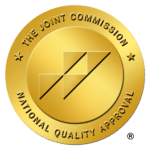The Impact of Depressive Disorders
Depression is more than just feeling sad or having a rough day—it is a serious mental health condition that affects how individuals think, feel, and function. For many men, depressive disorders can lead to feelings of hopelessness, loss of interest in activities, and difficulties managing daily responsibilities. At Firm Foundation Treatment Center in Woodstock, GA, we understand the deep impact depression can have on a person’s life, and we offer Christ-centered, evidence-based treatments to help men overcome depression and rediscover hope. Learn more about our Woodstock depression counseling.
Millions of people around the world struggle with depressive disorders, making them one of the most common mental health conditions. Through a combination of therapy, spiritual support, and a personalized approach, our programs help men navigate through depression and regain control of their lives.
What Are Depressive Disorders?
Depressive disorders are characterized by persistent feelings of sadness, emptiness, or irritability that interfere with daily functioning. Unlike occasional sadness, depressive disorders affect a person’s mood, thinking, and behavior over extended periods.
The most common types of depressive disorders include:
- Major Depressive Disorder (MDD): This is the most severe form of depression, where individuals experience intense feelings of sadness or hopelessness for at least two weeks.
- Persistent Depressive Disorder (Dysthymia): A chronic form of depression lasting for two years or more, often with less intense but long-lasting symptoms.
- Seasonal Affective Disorder (SAD): A type of depression that occurs at specific times of the year, most commonly in the winter months due to reduced sunlight.
Symptoms of Depressive Disorders
The symptoms of depressive disorders can vary in intensity and duration, but they generally affect how a person thinks, feels, and behaves. Some common symptoms include:
- Emotional Symptoms:
- Persistent sadness, hopelessness, or emptiness
- Loss of interest or pleasure in activities once enjoyed
- Feelings of worthlessness or excessive guilt
- Irritability or frustration, even over small matters
- Physical Symptoms:
- Fatigue or lack of energy
- Changes in appetite, leading to weight gain or loss
- Sleep disturbances (insomnia or oversleeping)
- Slowed movements or speech
- Cognitive Symptoms:
- Difficulty concentrating, making decisions, or remembering details
- Thoughts of death or suicide
Depression can affect every aspect of life, from personal relationships to professional performance, and it often leads to social withdrawal and isolation. These symptoms can last for weeks, months, or even years if left untreated.
Causes of Depressive Disorders
Depressive disorders are caused by a combination of biological, environmental, and psychological factors. Understanding these causes can guide effective treatment and management.
- Genetics: A family history of depression can increase the likelihood of developing the disorder. Genetic predisposition plays a significant role in the onset of depressive disorders.
- Brain Chemistry: Imbalances in neurotransmitters like serotonin, norepinephrine, and dopamine are linked to depression. These chemicals help regulate mood, and when they are out of balance, they can contribute to feelings of sadness and hopelessness.
- Environmental Factors: Traumatic events, such as the death of a loved one, divorce, financial difficulties, or chronic stress, can trigger depression. Ongoing life stressors, such as a demanding job or difficult relationships, can also contribute to the development of depressive symptoms.
- Medical Conditions: Chronic illnesses, such as diabetes, heart disease, or thyroid problems, can increase the risk of depression. Certain medications can also trigger or worsen depressive symptoms.
- Hormonal Changes: Hormonal imbalances due to pregnancy, menopause, or thyroid issues can play a role in the onset of depression.
Treatment for Depressive Disorders at Firm Foundation
At Firm Foundation Treatment Center, we offer comprehensive treatment plans for depressive disorders that blend evidence-based therapies with faith-based healing. Our Christ-centered approach provides clients with emotional and spiritual support, helping them find hope and meaning even in the darkest times.
Cognitive Behavioral Therapy (CBT)
Cognitive Behavioral Therapy is one of the most effective treatments for depression. CBT focuses on identifying and changing negative thinking patterns and behaviors that contribute to depression. Clients work with therapists to reframe negative thoughts and replace them with healthier, more constructive ones.
- How CBT Helps: Clients learn to challenge cognitive distortions, such as “I’m worthless” or “I’ll never get better,” and develop a more balanced perspective on life. CBT also provides tools for managing depressive symptoms, such as setting achievable goals and developing healthier routines.
Dialectical Behavior Therapy (DBT)
Dialectical Behavior Therapy (DBT) is another effective treatment for depression, especially for individuals who struggle with emotional regulation or suicidal thoughts. DBT teaches clients how to tolerate distress, manage intense emotions, and improve their relationships with others.
- How DBT Helps: DBT helps clients build emotional resilience, providing them with strategies to cope with overwhelming feelings. The mindfulness component of DBT encourages clients to stay present and focused, reducing rumination on negative thoughts.
Motivational Interviewing (MI)
Motivational Interviewing (MI) is useful for clients who feel ambivalent about engaging in treatment. Depression often leads to feelings of hopelessness, making it difficult for individuals to believe that change is possible. MI helps clients explore their own reasons for wanting to improve their mental health and strengthens their commitment to treatment.
- How MI Helps: Through guided conversations, MI empowers clients to discover their own motivations for change and overcome feelings of apathy. This approach helps clients take ownership of their recovery process.
Relapse Prevention
Relapse Prevention therapy is crucial for individuals recovering from depressive episodes. Depression is often a recurrent condition, and relapse prevention focuses on helping clients maintain the progress they have made in treatment.
- How Relapse Prevention Helps: Clients develop personalized relapse prevention plans that identify triggers for depressive episodes and outline strategies for managing stress and emotions. Relapse prevention helps clients recognize early signs of depression and take proactive steps to prevent a full-blown episode.
Family Systems Therapy
Depression can strain family relationships, and Family Systems Therapy works to improve communication and support within the family unit. In this approach, therapists work with families to address unhealthy dynamics that may be contributing to the client’s depression.
- How Family Systems Therapy Helps: This therapy encourages families to develop healthier communication patterns and learn how to support their loved one without enabling depressive behaviors. Family Systems Therapy also helps clients rebuild relationships that may have been damaged by depression.
Eye Movement Desensitization and Reprocessing (EMDR)
For clients whose depression is linked to trauma, Eye Movement Desensitization and Reprocessing (EMDR) can be an effective therapeutic tool. EMDR helps clients process traumatic memories that may be contributing to their depression.
- How EMDR Helps: By reducing the emotional intensity of traumatic memories, EMDR allows clients to move forward without being held back by the past. This can be especially important for clients whose depression is rooted in unresolved trauma.
Art Therapy
Art Therapy offers a creative and expressive way for clients to explore their emotions and process their depression. This therapy can be particularly helpful for individuals who struggle to express their feelings through words.
- How Art Therapy Helps: Through artistic activities such as drawing, painting, or sculpting, clients can express their inner struggles and begin to understand their emotions in a new way. Art Therapy provides a safe space for emotional exploration and healing.
Christ-Centered Healing for Depression
At Firm Foundation Treatment Center, we believe that true healing comes from addressing both the mind and the spirit. Our Christ-centered approach to depression treatment integrates faith into the recovery process, helping clients find hope and strength through their relationship with God.
- Spiritual Support: Clients are encouraged to engage in prayer, scripture reading, and reflection as part of their healing journey. Spiritual counseling is available to help clients explore their faith and find meaning in their struggles.
- Faith-Based Healing: Depression often causes individuals to feel disconnected from their sense of purpose. Our faith-based approach helps clients rediscover hope and direction by connecting their recovery to their spiritual beliefs.
Testimonial
“Firm Foundation helped me find light in the darkest moments of my life. Through therapy and spiritual support, I’ve learned how to manage my depression and lean on my faith. I’m stronger now than I ever thought I could be.” — John, 45, Woodstock, GA
Get Help for Depression in Woodstock, GA
If you or a loved one is struggling with depression, don’t wait to seek help. At Firm Foundation Treatment Center, we offer Christ-centered, evidence-based treatments that can help you regain control of your life. Contact us today to learn more about our depression treatment programs and start your journey toward healing.













